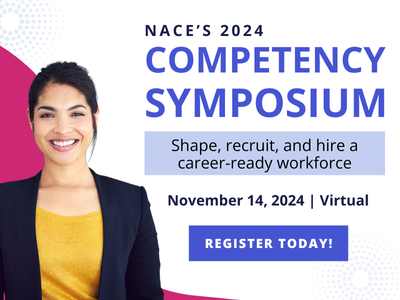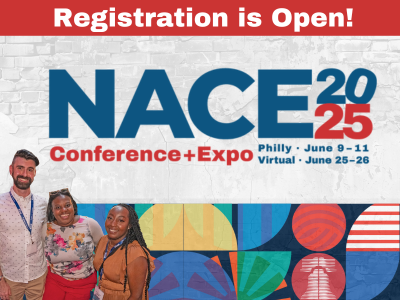For the Class of 2021, Auburn University achieved a 99.6% knowledge rate on its first-destination survey (FDS). This high rate is driven by the FDS being part of a course all Auburn students are required to take.
“Our undergraduate FDS is one of four assessments housed in Creed to Succeed, a non-credit Canvas course all undergraduate students must complete the semester leading up to graduation,” explains Anna Claire Stinson, coordinator, data collection and analysis in the Auburn University Office of Academic Insight.
Through a series of university requirements—including FDS—the course gathers valuable information on core curriculum student learning, campus engagement, student experiences, and career outcomes.
“Since the FDS is infused in Creed to Succeed, our efforts are not necessarily centered on getting graduates to complete it, but rather on building awareness and educating students, faculty, and staff on the course itself through clear and consistent messaging and branding,” Stinson says.
Starting in the student’s last semester, an AT Hold is placed on the graduating senior’s account.
“The AT Hold is associated with the Creed to Succeed course and does not prevent a student from registering for classes or accessing financial aid packages,” Stinson says.
“The hold only restricts the delivery of a student’s physical diploma, providing the successful conferral of a degree. By completing Creed to Succeed—and thus the FDS—the AT Hold is removed and they receive their diploma.”
The FDS runs for the final two weeks of the semester prior to a student’s graduation from Auburn. The ensuing six-month follow-up process includes:
- Two months out—An email check-in survey;
- Three months out—Academic college data requests;
- Four months out—LinkedIn data scrape;
- Five months out—Individual phone calls; and
- Six months out—A final email check-in survey and individual phone calls.
“During our six-month follow-up, we use positive, encouraging language in our check-in emails and phone calls, and always remind alumni of the career services and resources still available to them,” Stinson explains.
“Adding in a second round of final check-in emails and phone calls has also boosted our knowledge rate and percentage of successful first-destination outcomes.”
She adds that at the end of each calendar year, Auburn also submits a National Clearinghouse data request.
Creed to Succeed was officially launched in Spring 2019 as the premier graduating-senior data-collection course.
“We are seeing at least a 99% knowledge rate each year, including a rate of approximately 98% at graduation,” Stinson says.
“Prior to this initiative, taking the FDS was voluntary and, despite our efforts to advertise the survey via email, graduating senior events, and more, our knowledge rates were significantly lower. For the Class of 2019, in which Creed to Succeed was not fully implemented, we had an 82.6% knowledge rate.”
Creed to Succeed is a highly collaborative cross-campus initiative and includes several key partners:
- Office of Academic Insight;
- Biggio Center for the Enhancement of Teaching and Learning;
- Institutional Research;
- Office of the Registrar;
- Office of Information Technology;
- Provost Communications and Marketing; and
- University Career Center.
In 2020, these units received the President’s Outstanding Collaborative Units Award for their work on Creed to Succeed.
Auburn’s FDS data is provided to campus stakeholders each year for use in their units, published on the Office of the Provost website as an external-facing dashboard, and submitted to NACE. In addition, it will be part of Auburn University’s upcoming Quality Enhancement Plan (QEP), dubbed AUBURNACHIEVE.
“This is an initiative designed to increase first-destination outcome quality and success for graduating students,” Stinson points out.
“We look forward to sharing the data we collect with even more stakeholders to contribute to the QEP.”
In the FDS, students are asked what types of career assistance—such as interviewing, graduate school prep, resume assistance, and networking—they would like to be contacted about post-graduation.
“We are currently working closely with career services to develop a cross-campus strategy for providing targeted career outreach to still-seeking alumni during the follow-up period,” Stinson says.
“Our FDS data is visualized in a dashboard that is shared with career services, and together we identify areas of career outreach that are desired both institution-wide and by college. Our hope is that by using our actionable FDS data in this manner, we can not only collect more FDS data from recent alumni, but also assist them in achieving their desired career outcomes and continuing to engage with Auburn University beyond graduation.”
To achieve a high FDS knowledge rate, Stinson suggests that career centers work with campus partners to explore what a central platform and unified strategy for FDS data collection and reporting could look like.
“Building support for this does not happen overnight, but identifying ‘data champions’ on campus and designing an initiative that fits the context of your institution could make a significant difference in your knowledge rate,” Stinson says.
“Don’t stop there, though. Consider how you plan on intentionally using the data and what added value this could bring to a variety of stakeholders.”
She says that some other keys for FDS success are clear communication, leveraging the strengths of individual units, and having senior leadership champion the process to help garner buy-in and collaboration from other units.
“Beyond that,” Stinson continues, “we have learned that effectively collecting, managing, analyzing, and reporting on this data constitutes a full-time position. If boosting your knowledge rates and successful first-destination outcomes are priorities for your institution, then allocating the necessary time and resources to accomplish that is vital to not only managing the process, but continuously improving it.”






